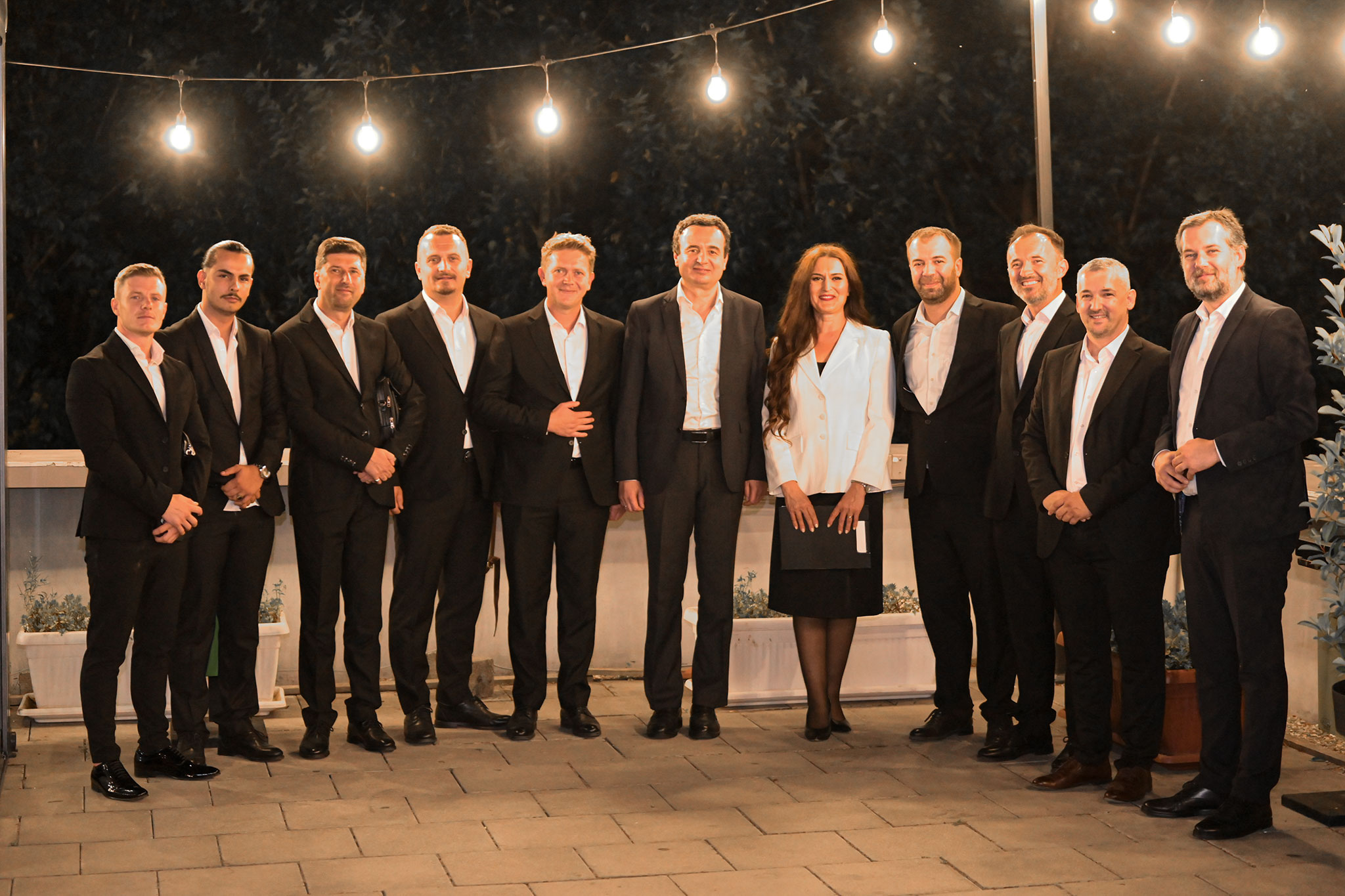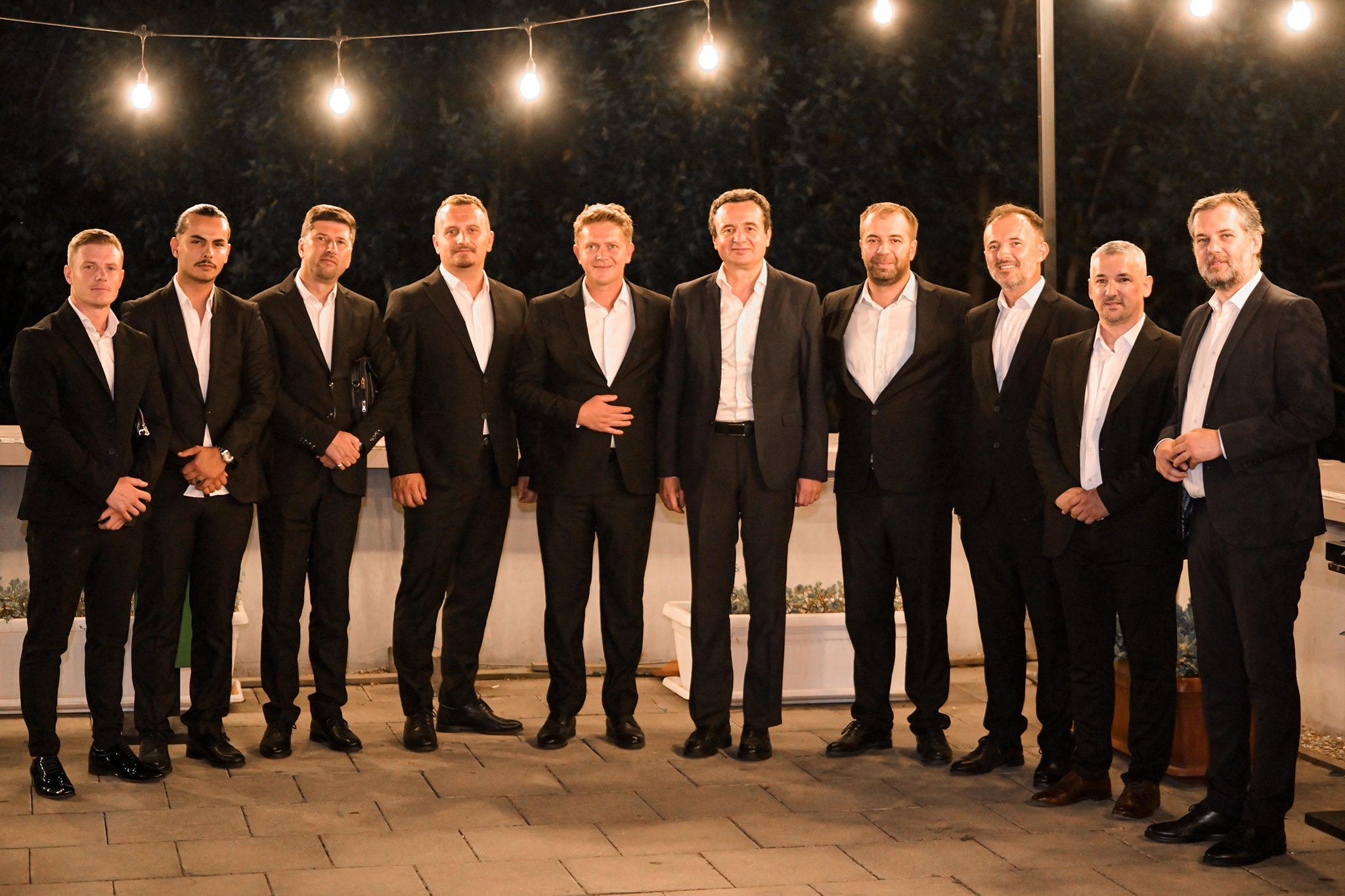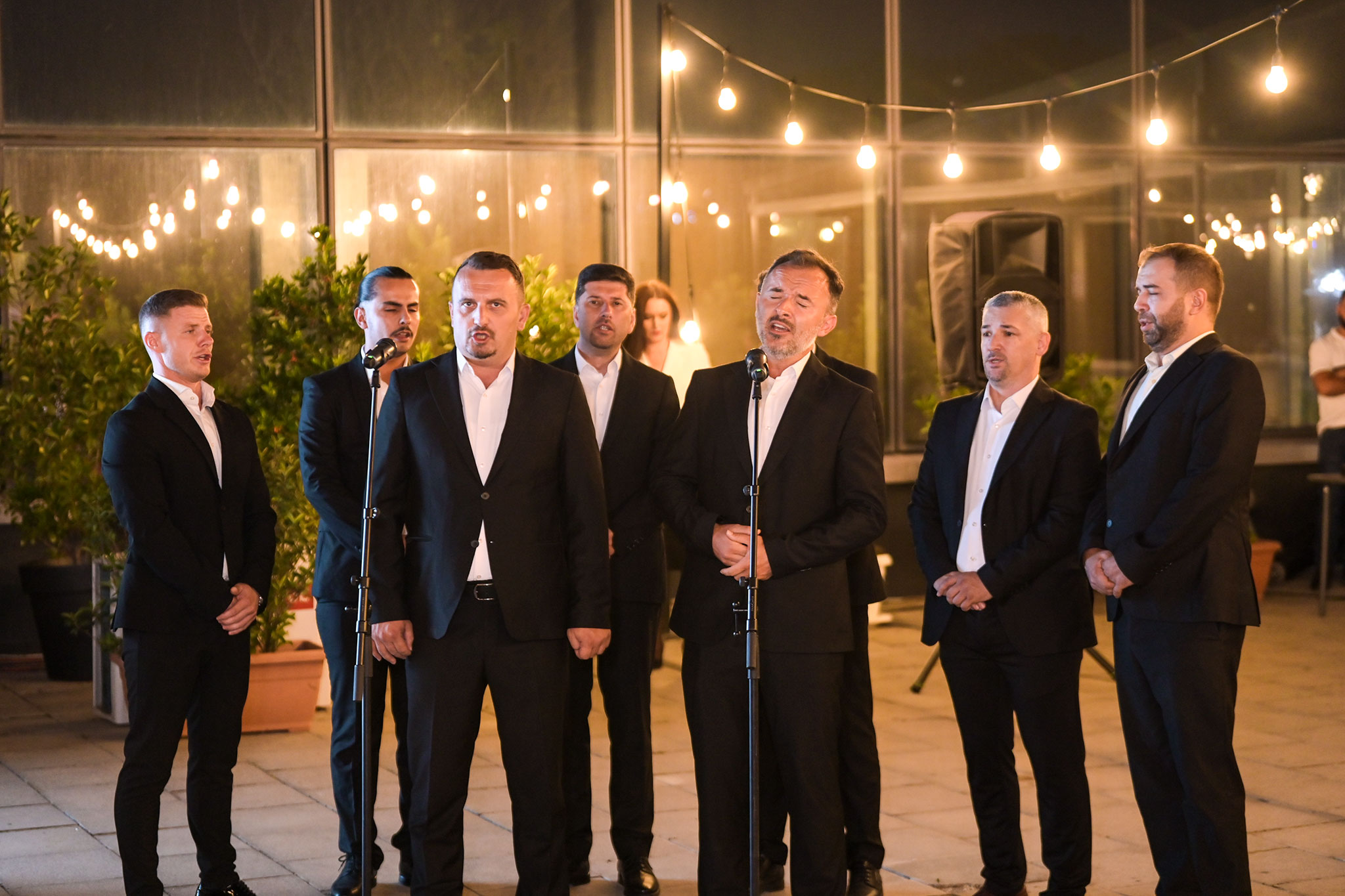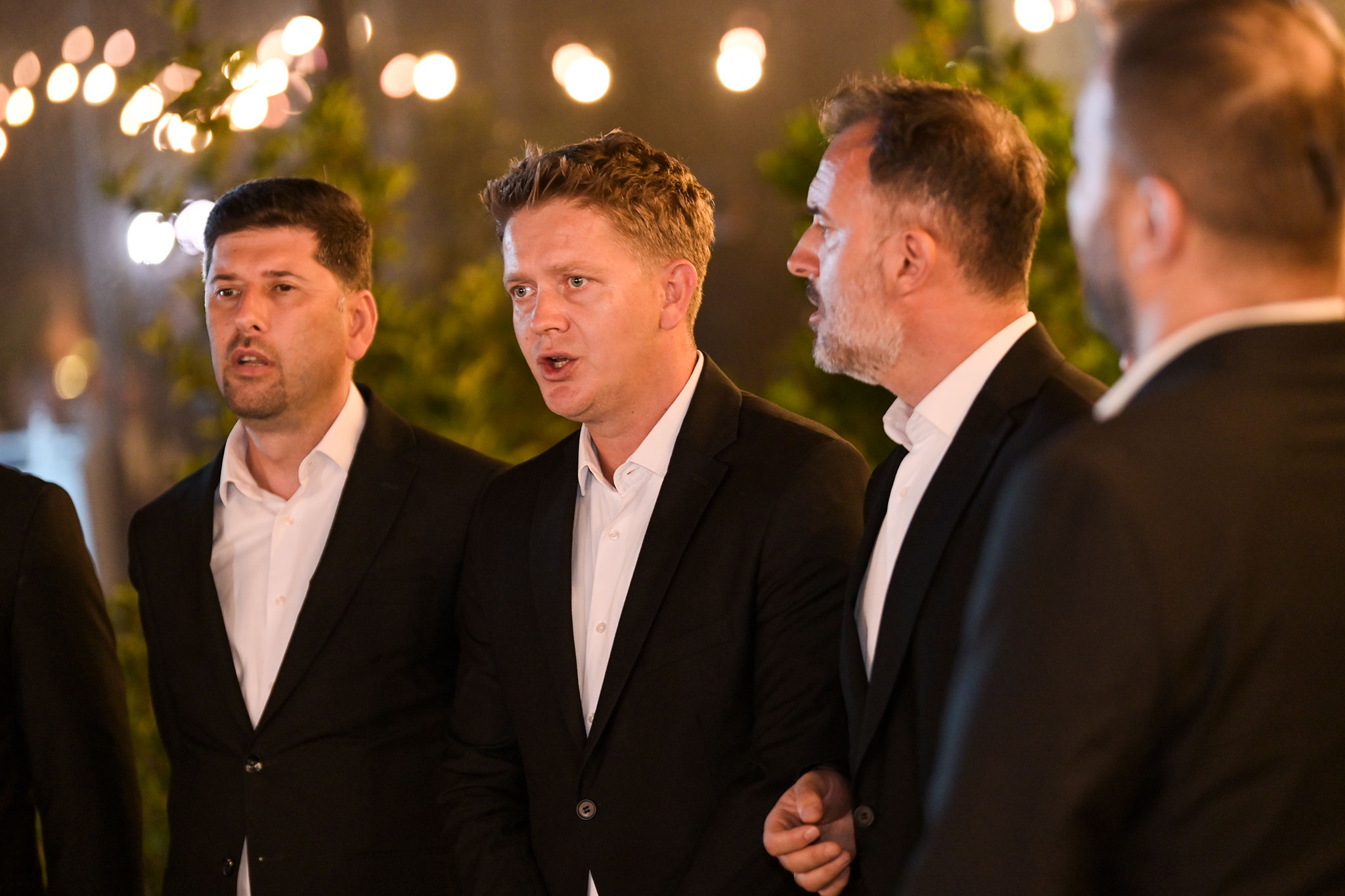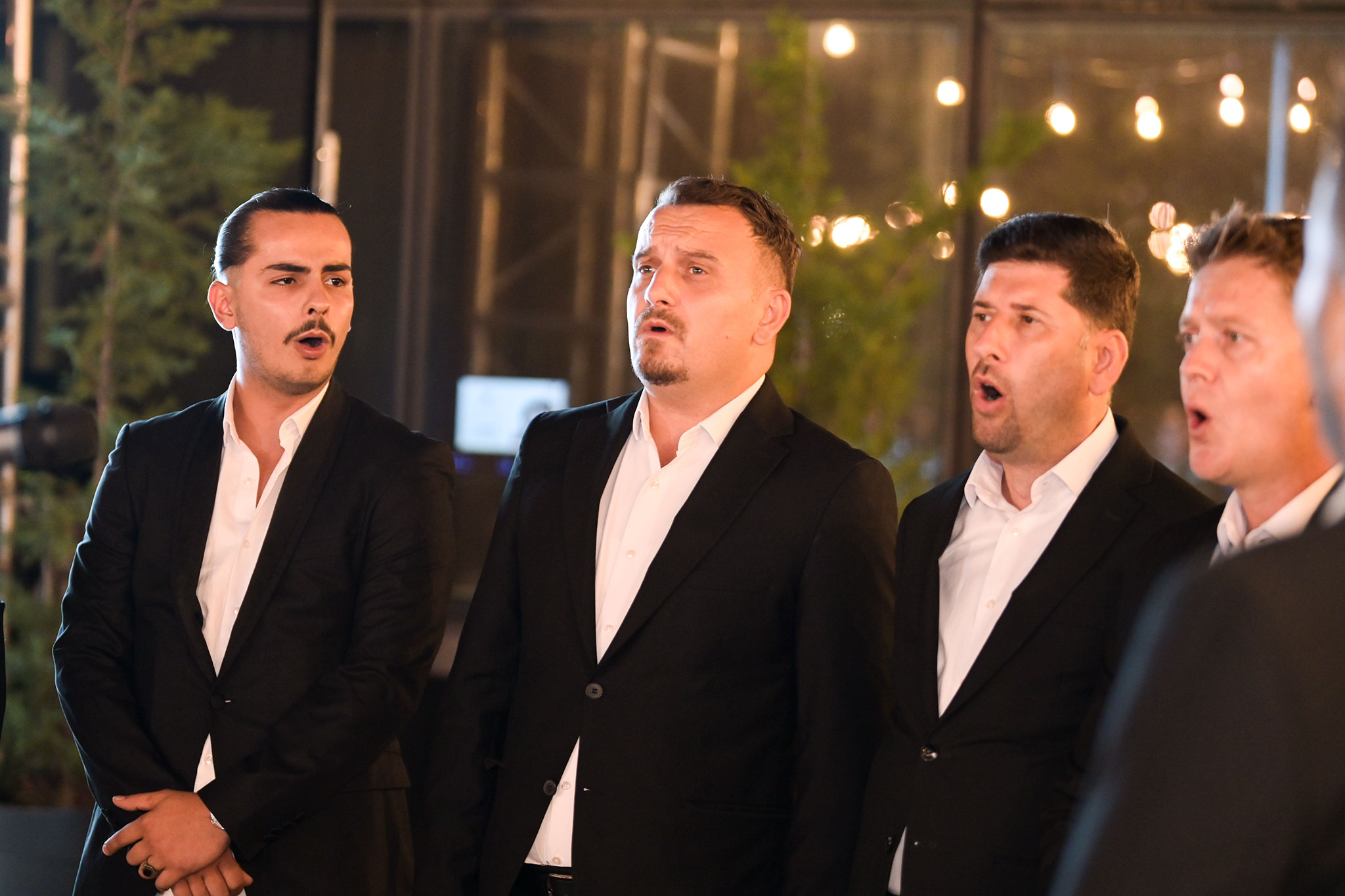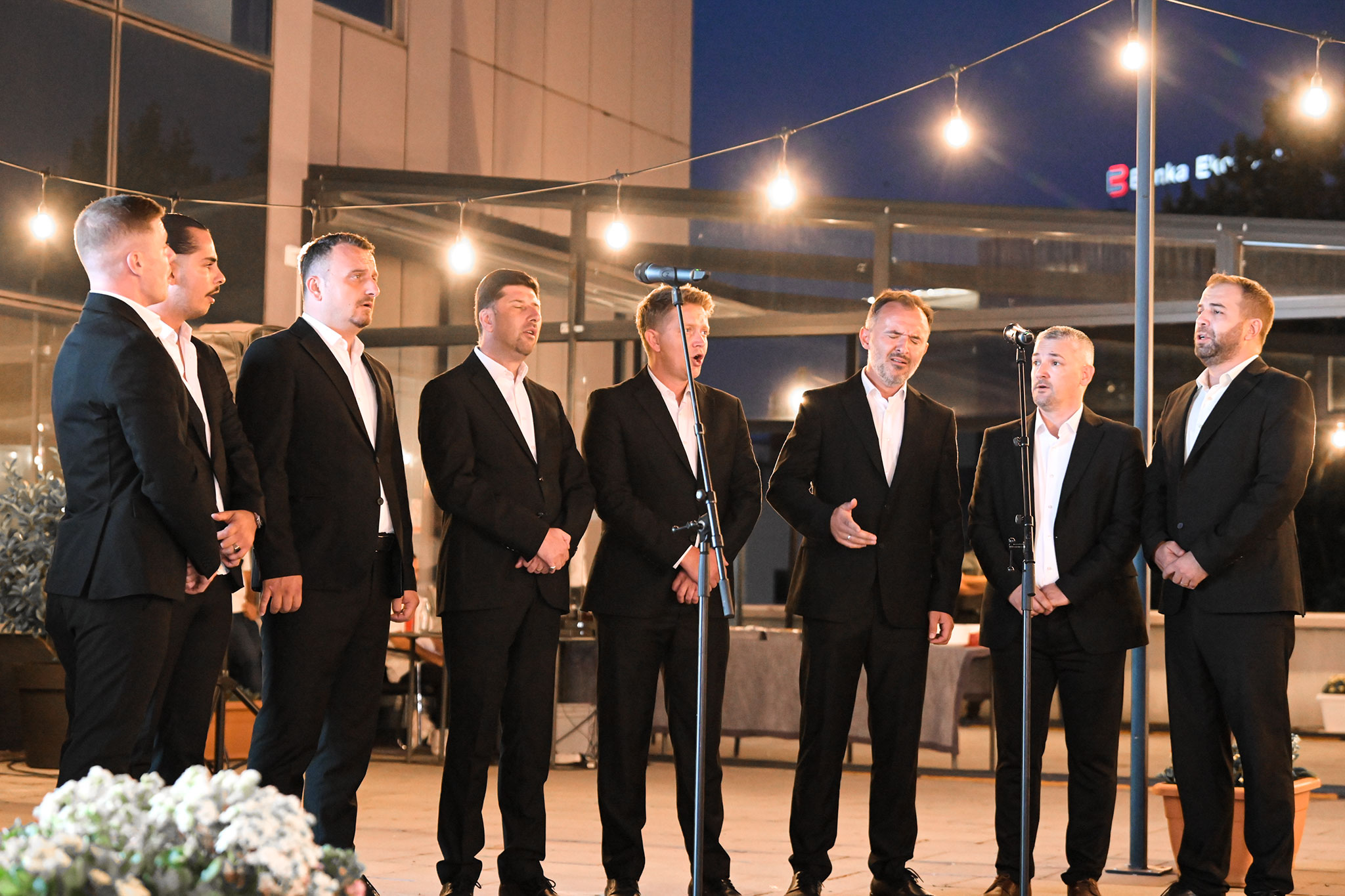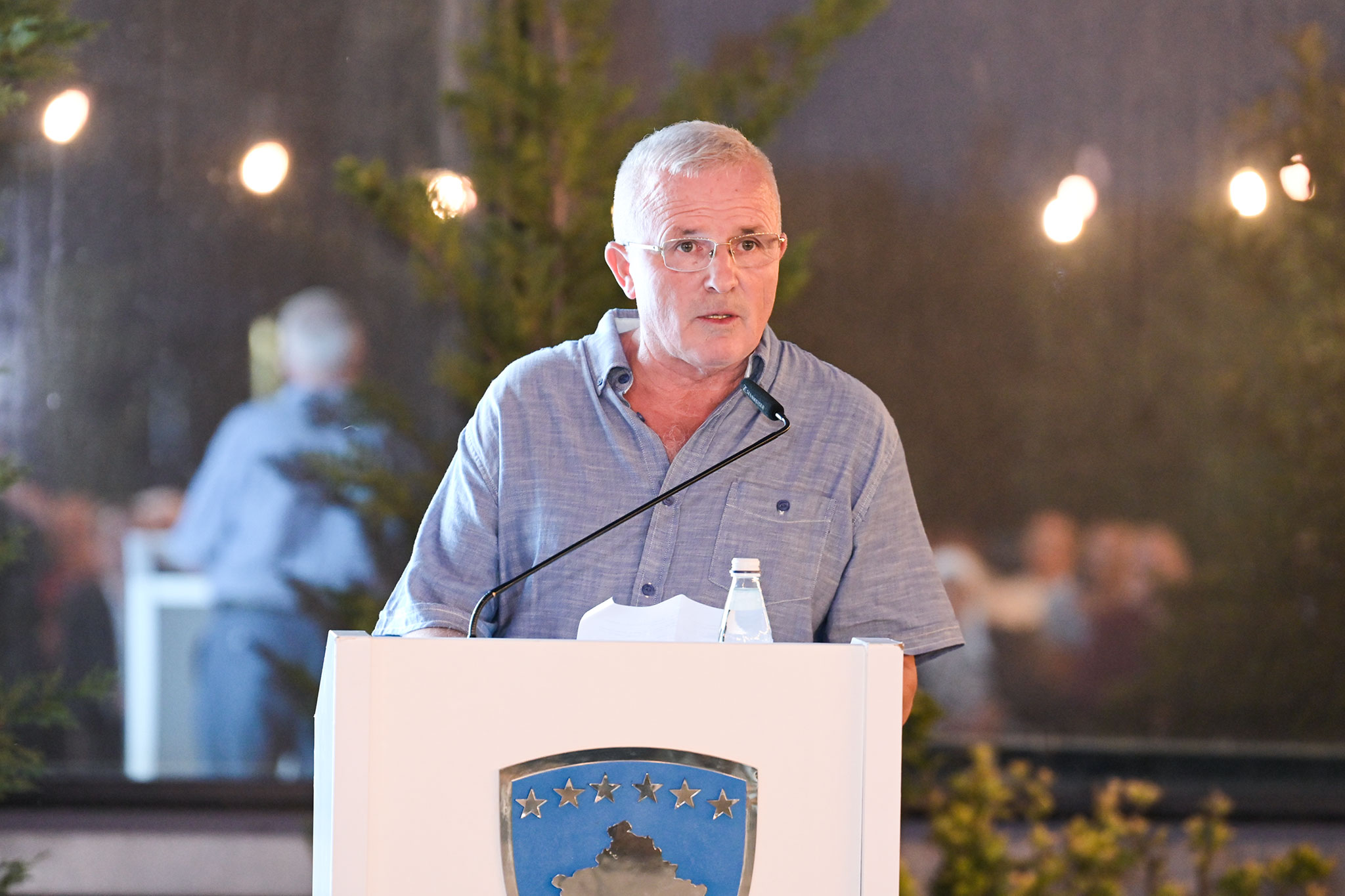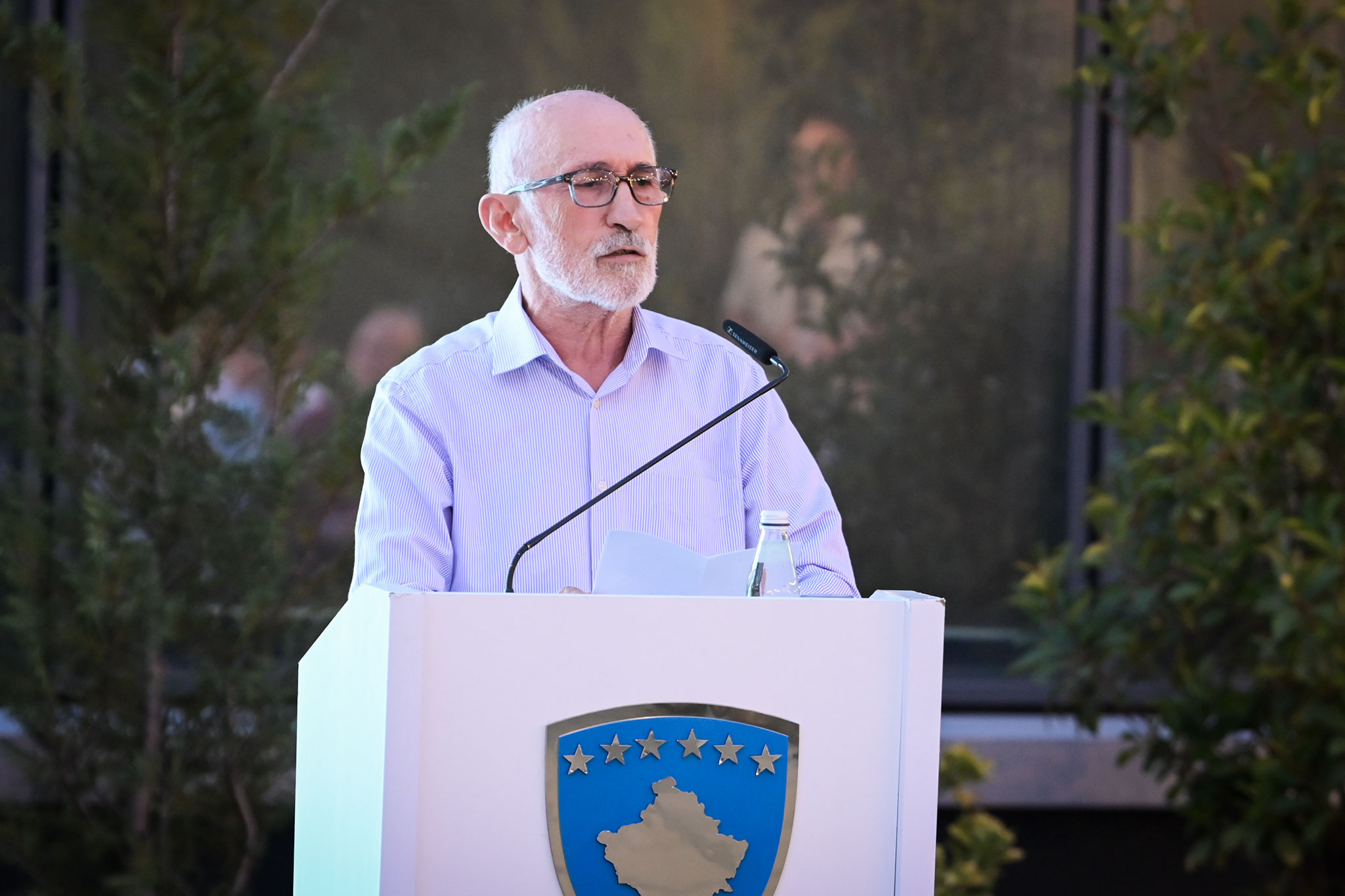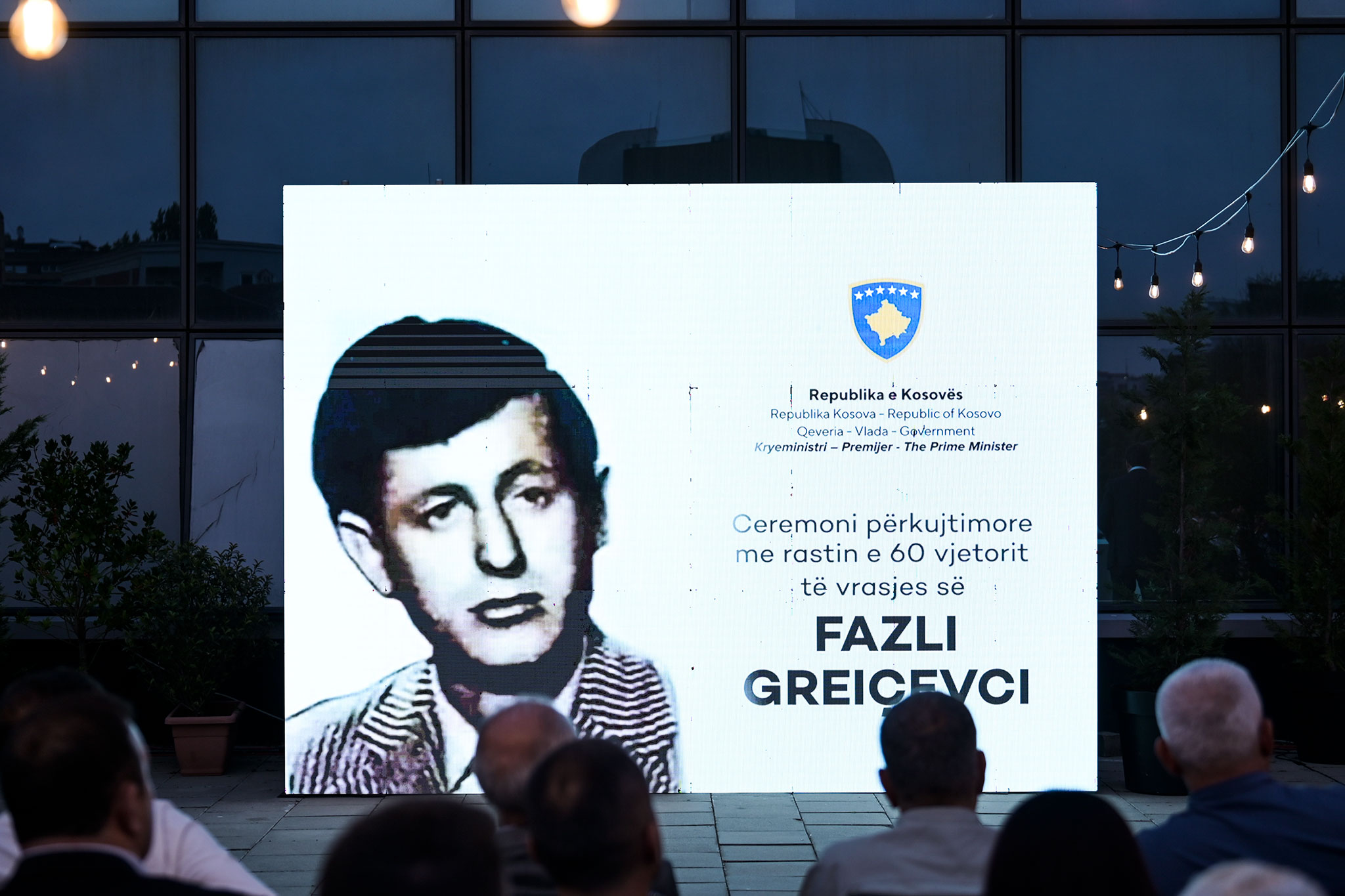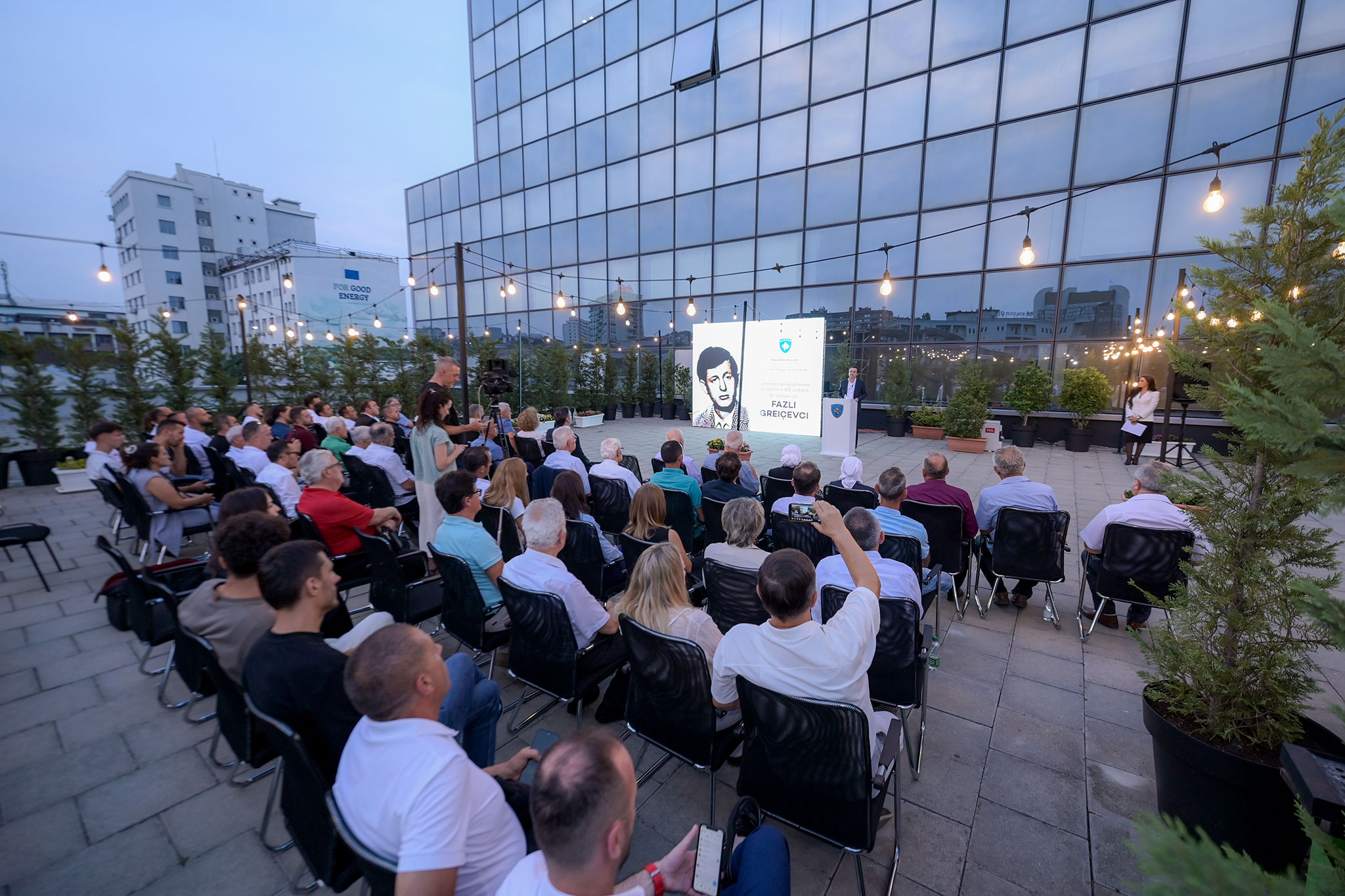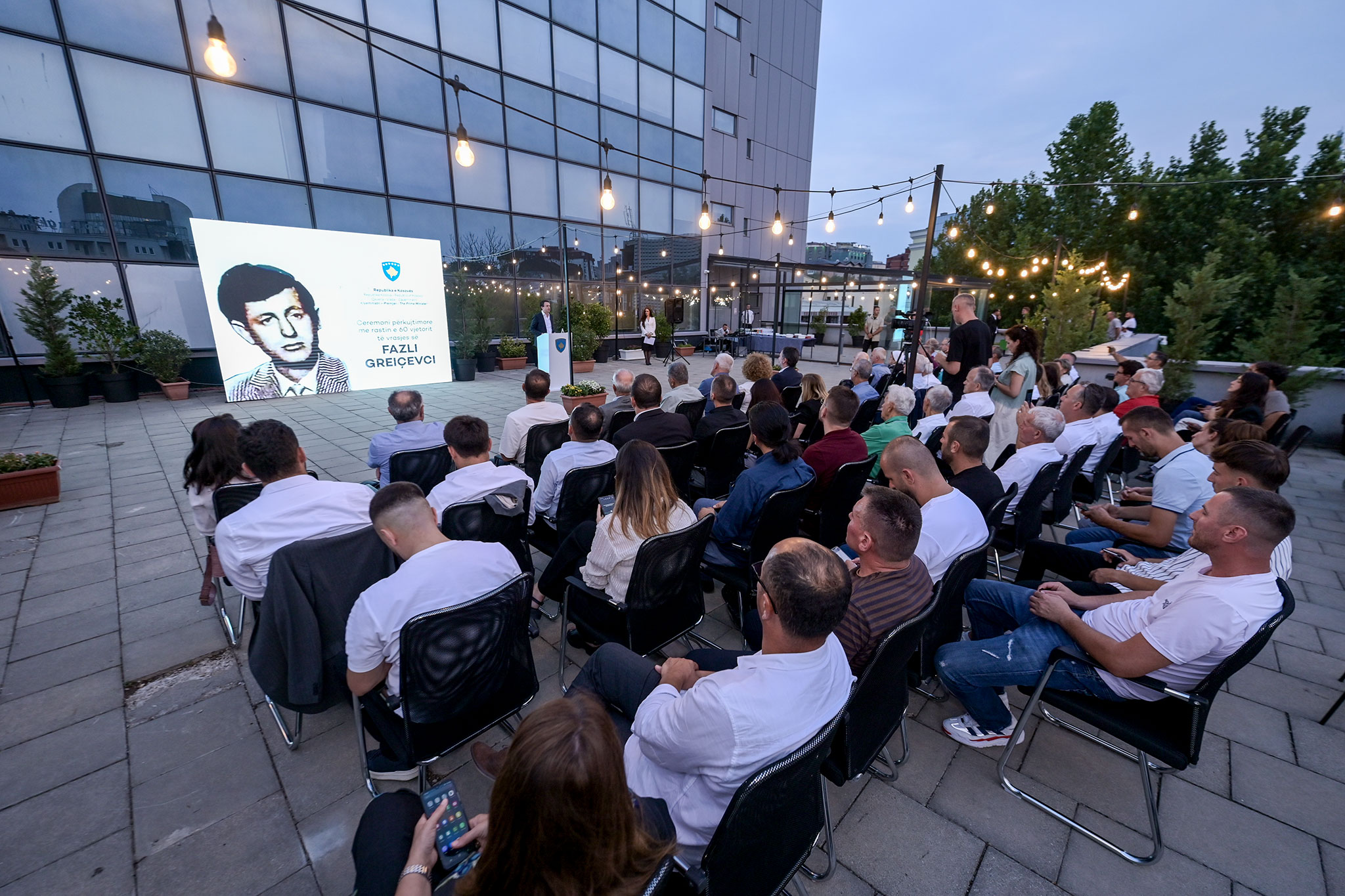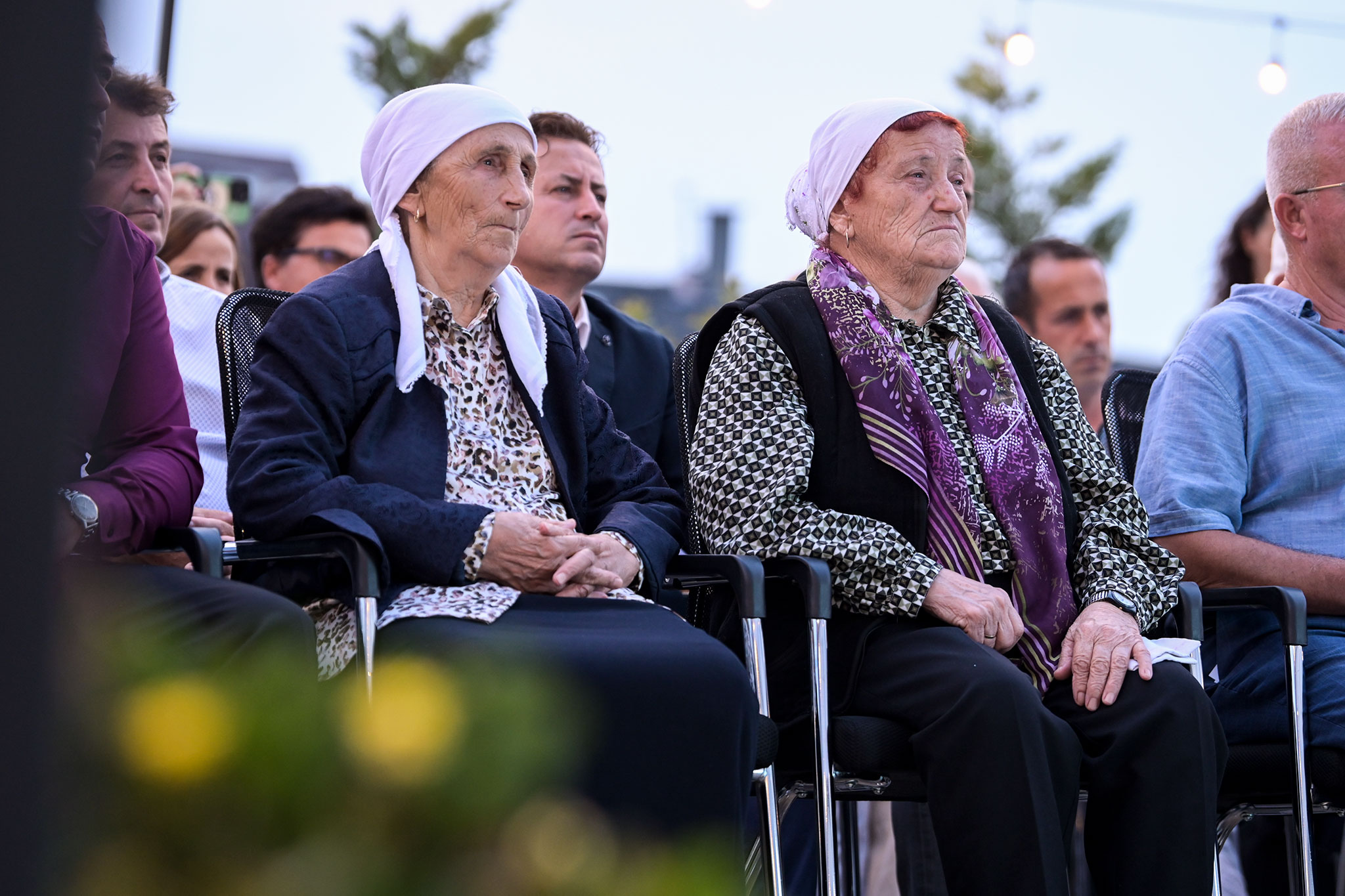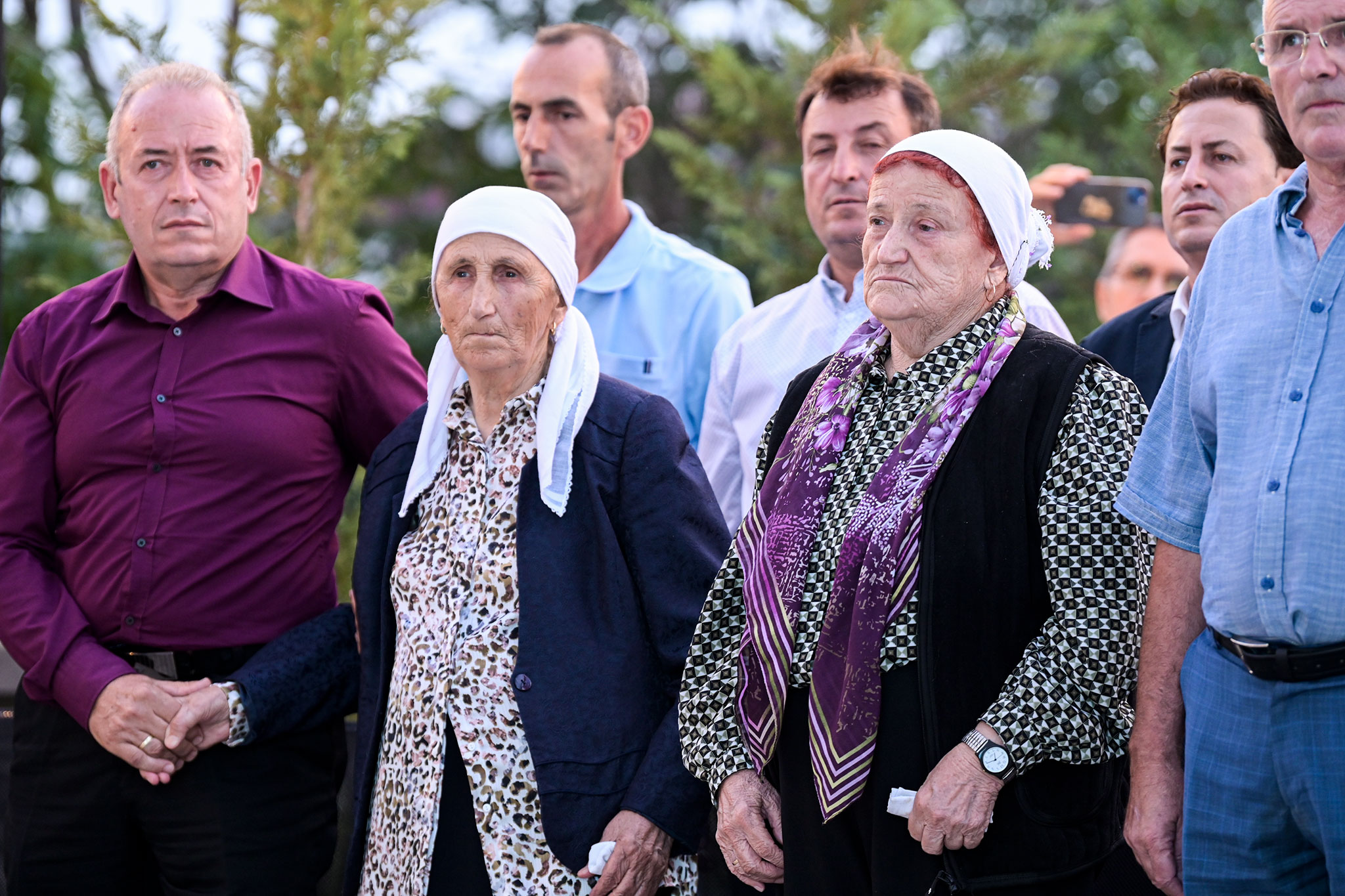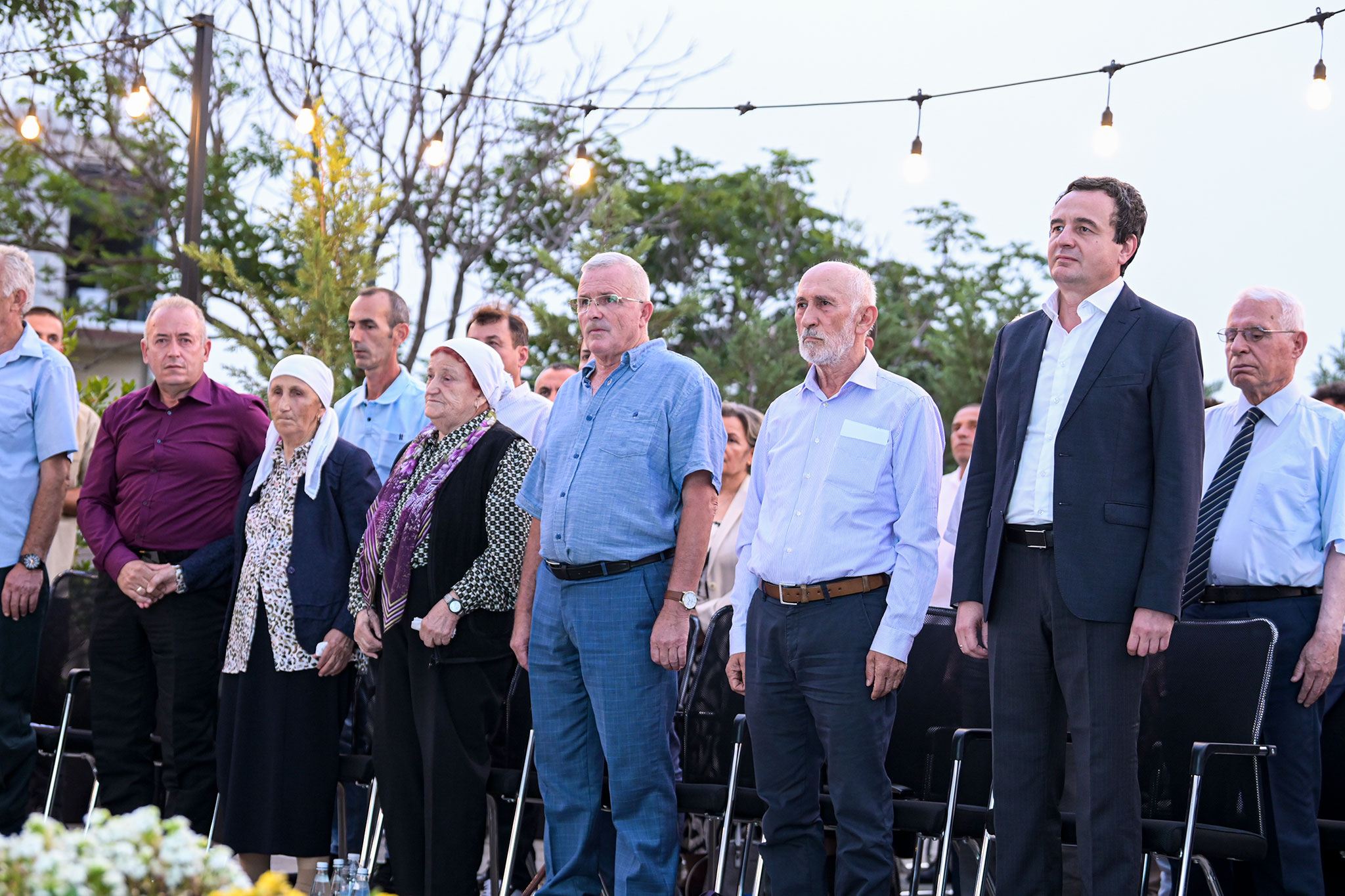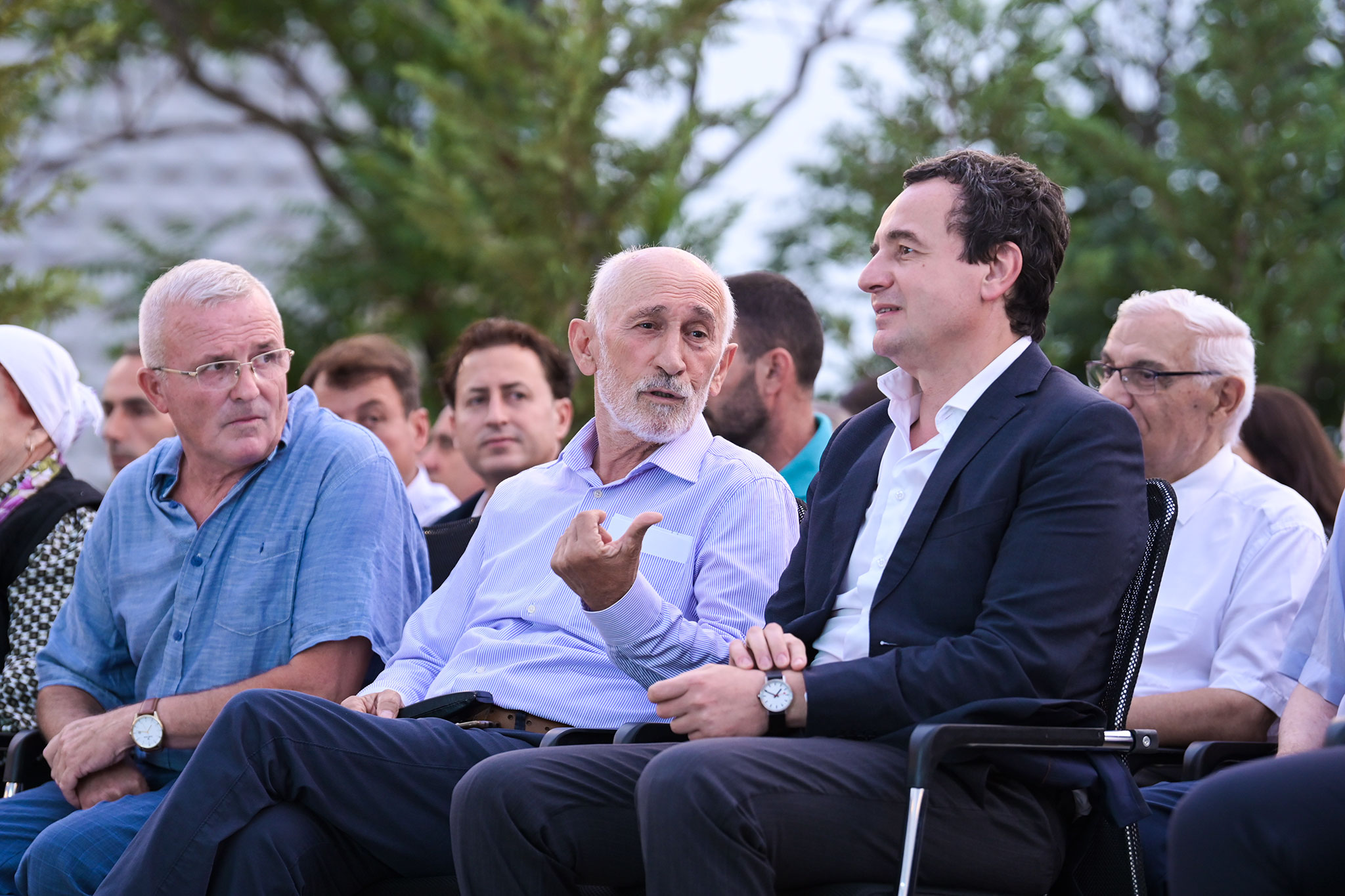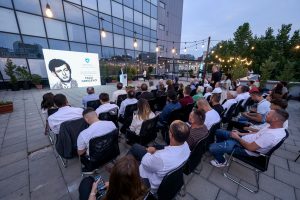Prishtina, August 17, 2024
Honoring the remarkable activist and patriot of the national issue, Fazli Greiçevci, a commemorative ceremony was held at the Open Balcony of the Government of Kosovo.
With the presence of Fazli Greiçevci’s family members and many other political figures, Prime Minister Albin Kurti referred to him as one of the largest stones on which the foundations of Kosovo’s freedom and statehood have been built and stand. “If we imagine the state of Kosovo as a large building, in the construction of which many people and generations have participated and contributed significantly, he represents one of the main pillars of this building”. His name is: Fazli Greiçevci. “He was a dedicated teacher, a prolific poet, an engaged intellectual, a political activist, and an unwavering patriot” stated Prime Minister Kurti.
In modern history of Kosovo, Fazli Greiçevci has earned a place as one of the figures whose life reflects one of the earliest chapters of Albanians’ efforts to liberate themselves from Serbia and break away from Yugoslavia after the end of World War II.
Prime Minister Kurti has remembered all the political activity of the patriot Fazli Greiçevci in the Revolutionary Movement for the Unification of Albanians – RMUA, which aimed to unite with Albania, until his arrest on August 3, 1964. Following the extreme and inhuman torture inflicted by the Yugoslav police, he lost his life in the prison of Prishtina on August 17, 1964.
“The political ideas entrusted to Fazli Greiçevci, which he developed and represented, maintained their relevance until the righteous war of the Kosovo Liberation Army, in 1998 and 1999, when his comrade Adem Demaçi became the political representative of this armed liberation organization, namely the KLA”. So today, on the 60th anniversary of his murder, we remember Fazli Greiçevci as one of the most prominent names among the fallen martyrs on the long road to the liberation of Kosovo. Fazli Greiçevci’s name unites the fundamental elements of our nation: language and flag. Glory to Fazli Greiçevci and all the martyrs of our freedom”, said the Prime Minister.
The ceremony was held following the tributes paid by the Prime Minister of the Republic of Kosovo, Albin Kurti, earlier today at the grave of the activist Fazli Greiçevci.
Prime Minister Kurti’s full speech:
Honorable sisters of Fazli Greiçevci, Mrs. Hatixhe and Mrs. Halime, Mr. Blerim Greiçevci, Fazli’s nephew, who personally took care of preserving, organizing, and publishing many of Fazli’s manuscripts,
Honorable extended Greiçevci family, nephew and niece,
Honorable Mr. Hajrulla Çeku, Minister of Culture, Youth, and Sports,
Honorable Ms. Rozeta Hajdari, Minister of Industry, Entrepreneurship, and Trade,
Honorable Mr. Xhelal Sveçla, Minister of Internal Affairs,
Honorable professor, Dr. Agim Vinca,
Honorable members of the Assembly of the Republic of Kosovo and deputy ministers and other colleagues from the government,
Honorable leaders and representatives of state and municipal institution,,
Honorable Mr. Shefik Sadiku, president of the Association of Political Prisoners of Kosovo,
Honorable former political detainees, veterans, war-disabled from the liberation war, families of the nation’s martyrs,
Honorable participants,
Ladies and gentleman,
Dear sisters and brothers,
Today’s evening has gathered us here at the Open Balcony of the Government of Kosovo, to commemorate one of the largest stones upon which the foundations of Kosovo’s freedom and statehood have been raised and stand. If we imagine the state of Kosovo as a large building, in the construction of which many people and entire generations have participated and contributed significantly, it represents one of the main pillars supporting this building. His name is: Fazli Greiçevci. He was a dedicated teacher, prolific poet, engaged intellectual, political activist, and unwavering patriot. Throughout modern history of Kosovo, Fazli Greiçevci has established himself as one of the figures in whose life one of the earliest chapters of the Albanian struggle for liberation from Serbia and secession from Yugoslavia after the end of World War II can be read.
This chapter is known especially through the name of Adem Demaçi, a symbol of national resistance, well-known internationally, but on his path, he was not alone. Uncle Adem Demaçi from Prishtina, but originally from Lower Lupç, had many friends, among whom: Zeqir Gërvalla and Sabit Ratkoceri from Lupç; Azem Beqiri from Dumnica; Abdyl Lahu from Gllamnik; Ahmet Haxhiu also from Lupç; Hazir Shala from Barileva; Xhafer Mahmutxhiku from Mitrovica; Sabri Novosella from Vushtrria; Tefik Sahiti and Hilmi Rakovica from Prishtina; Selman Berisha from Prugoci; Zeqir Agushi from Prishtina; Hysen Daci and Selahudin Daci from Peja; Ramadan Shala also from Peja; as well as the one we will dwell on longer tonight, Fazli Greiçevci from Sankoc of Drenas.
In September 1963, in Pristina, Adem Demaçi called a secret meeting during which the political organization Revolutionary Movement for the Unification of Albanians – RMUA was founded. At the founding meeting, the other participants, a total of five, were Fazli Greiçevci, Zeqir Gërvalla, Azem Beqiri, and Abdyl Lahu, and they elected Adem Demaçi himself as Chairman of the Revolutionary Committee. It was also agreed to draft the organization’s program and statute, and to establish local centers, to be named city committees in cities and locality committees in villages. As a result, the RMUA established its committees in Prishtina, Gjilan, Peja, Gjakova, Mitrovica, Skopje, and in Istanbul as an external committee, appointing Nijazi Saraçogllu as chairman. Meanwhile, many other intellectuals such as Sabit Kapiti, Dr. Ali Sokoli, Dr. Xheladin Deda, Mustafa Venhari, among them also girls and women like Elhame Shala, Emine Rakovica, Eshrefe Halimi, Mejreme Berisha and others.
Adem Demaçi went to Ramadan Shala’s house in Peja and together, within five days, from January 27th to 31st, 1964, they drafted and handwritten the program and statute of the Revolutionary Movement for the Unification of Albanians. Article 1 of the RMUA statute was written, I am quoting: “The primary and ultimate goal of our Movement is to secure the right to self-determination up to secession for the predominantly Albanian-inhabited areas still under Yugoslav administration, meaning, the primary and ultimate goal of our Movement is the liberation of Albanian regions, annexed by Yugoslavia and the unification of these regions with their mother – Albania”.
Why was Fazli Greiçevci silent all this time? The organization had given him two entirely distinct assignments. Firstly, the leader of the RMUA, Adem Demaçi, had thought of saving Fazli from local organizations, letting him focus on central organization and prepare for a very special task. Given his reputation as a highly mature and composed intellectual, as well as being suitable for organizational representation, Fazli Greiçevci was assigned the mission to engage with the highest state authorities of Albania. Yet, thanks to his organizational abilities and connection with the people, he also assumes the responsibility of the movement’s organizational secretary. Not only was it stated in the statute that the primary and ultimate goal was unification with Albania, but they viewed the Albanian state as the sole channel and the most suitable path to assert the activity of the RMUA even beyond Yugoslavia, where Albanians were suppressed, kept closed and isolated, and exploited.
Meanwhile, activists of RMUA started carrying out their first actions, which were manifested in the form of writing slogans like “Long live Albania” and placing hundreds of Albanian national flags, sewn and produced by them all over Kosovo, on the most frequented streets and visible places. On June 8, 1964, the head of the RMUA, Adem Demaçi, was taken into custody, and two months later, on August 3, 1964, his close associate and collaborator Fazli Greiçevci was also arrested. For two consecutive weeks, every day, the Yugoslav secret police subjected Fazli to extreme, inhumane torture, as a result of which he died in Pristina prison. Fazli Greiçevci was buried, as was said earlier, in a coffin closed by the police, on August 17, 1964, exactly here 60 years ago. He was only 29 years old when UDB criminal officials killed him under torture.
Superior in his education, Fazli Greiçevci had also served as a teacher in the villages of Vasilevë, Dobroshec and Kishnarekë. In one of the photographs shared with his students, Fazli had left a note dated April 8, 1963, I am quoting: “Perhaps tears will come to your eyes when you see your teacher who has tried with flesh and spirit, only to make you mature and honest people for the future.”
His work as a teacher bore fruit, just like in the case of his student Fehmi Lladrovci, who would later become one of the commanders and most prominent figures of the Kosovo Liberation Army, today a national martyr.
In addition to being a teacher, the intellectual Fazli Greiçevci also left a rich literary legacy of several notebooks of poems, which would be published in full only many years later. Among them, in some verses written by him when some of his friends were imprisoned, Fazli wrote, I quote: “Kam dalë dhe prore kam me dalë/Bregoret me sy n’qiltri me i sodit/Kurr kangën time s’kam me ndalë/ Rrugët e mbara tue i shëndritë.”
Among hundreds of different illegal organizations that were established and engaged in the liberation of Albanians from Yugoslavia and among thousands of their activists and political prisoners, Fazli Greiçevci was one of the most prominent, both in terms of his profile and in terms of the activities and fate that marked his life. Two weeks after the murder of Fazli Greiçevci, in a trial between 27 and 31 August 1964, Adem Demaçi was sentenced to 15 years in prison, of which he will serve 10, out of the total 28 years he has spent in prison. If Fazli Greiçevci were to survive the tortures, he would certainly face a similar kind of political trial followed by years in the prisons of Yugoslavia.
He died, but certainly not his ideas, which were pushed forward by his friends, some of whom had the same fate, while many of them spent over 666 centuries in the prisons of former Yugoslavia everywhere. The political ideas entrusted to Fazli Greiçevci, which he developed and represented, maintained their relevance until the righteous war of the Kosovo Liberation Army, in 1998 and 1999, when his comrade Adem Demaçi became the political representative of this armed liberation organization, namely the KLA.
So today, on the 60th anniversary of his murder, we remember Fazli Greiçevci as one of the most prominent names among the fallen martyrs on the long road to the liberation of Kosovo. Fazli Greiçevci’s name unites the fundamental elements of our nation: language and flag.
Glory to Fazli Greiçevci and all the freedom martyrs.


